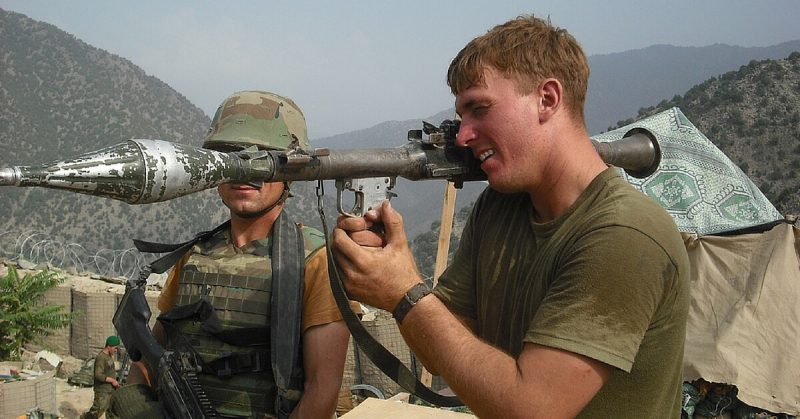When his first request to join the firefight inflicting a heavy toll on his friends was denied, Corporal Dakota Meyer obeyed. He could hear the sounds of the ambush both on the radio and with his own ears so he requested again and was denied again, being told it was too dangerous.
This scene played out four times before Meyer grabbed another Marine and took matters into his own hands, even against these very specific orders. Manning the gunner’s turret while the other Marine drove, Meyer would make five trips into the ambush zone in order to retrieve the fallen and wounded.
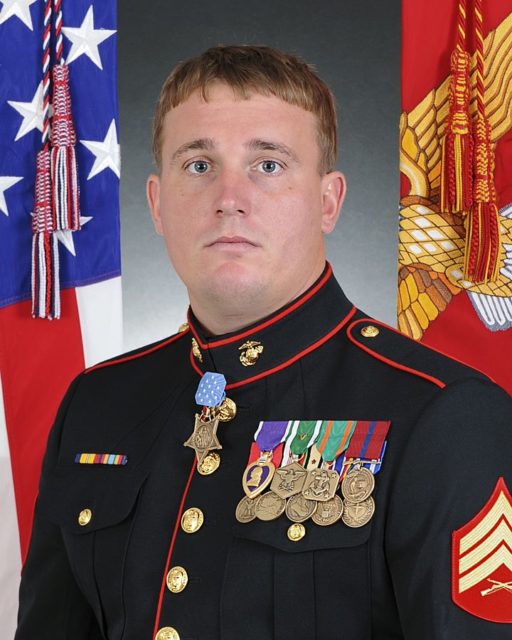
Over 30 men were evacuated from the kill zone by Meyer as he relentlessly pursued his friends. When he found them, they had been slain by the enemy. They died as a team, refusing to leave one another.
For Dakota Meyer, he saw it his duty to bring them back home and during this action would earn a Medal of Honor. He had stated that he wears it on behalf of his friends who died that day in Afghanistan.
Born to Fight
Dakota Meyer was born in June of 1988 in Columbia, Kentucky, and from an early age displayed the type of tenacity and rebelliousness that would lead him to fame. A high school teacher in Kentucky would remark that if you told Dakota he couldn’t do something, he was going to do it. This proved to be a fortunate characteristic for the men who fought with him in Afghanistan. He enlisted in the United States Marine Corps after high school in 2006 and soon found himself serving in Iraq, in 2007.
However, it was in Afghanistan that Meyer set himself apart and earned his Medal of Honor. Despite more than seven years of war, the Taliban continued to prove a resilient enemy in the mountains and valleys of Afghanistan.
US troops wanted to win the trust of the local populace, but this proved difficult, as their enemies would often apply pressure to people in the area, intimidating them into not cooperating.
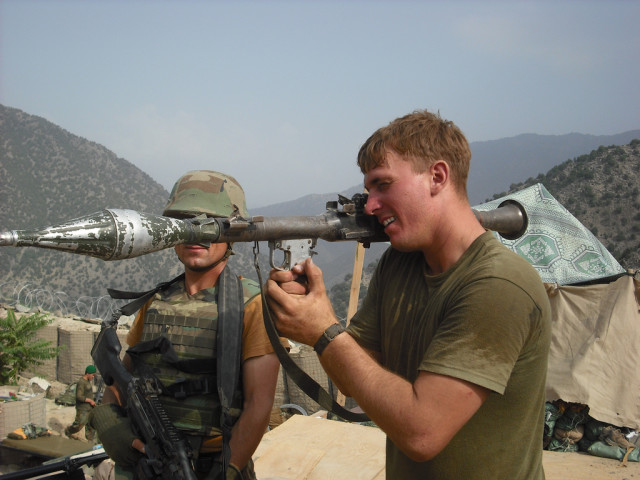
As a result, it was often the tactic to meet and win over the village elders to gain their support, and meetings in dangerous locations was common. It was on one such trip, this time to meet with the elders of Ganjgal, that the events transpired that would lead to Meyer receiving his Medal of Honor.
A Dangerous Liaison
On the morning of September 8th, 2009, a joint patrol of Afghan forces and Americans set out on foot to meet with elders in the Village of Ganjgal in Kunar Province. Corporal Meyer was posted to maintain security at the patrol rally point which meant he would not be descending into the village with the rest of the patrol about a mile away.
Just as the patrol reached the village in the early morning hours, they came under fire. A hail of bullets, RPGs, and mortars engulfed them, fired by approximately 50 Taliban fighters who were lying in wait. The Coalition forces were taking heavy casualties and Meyer, along with a fellow Marine, could do nothing but listen in over the radio.
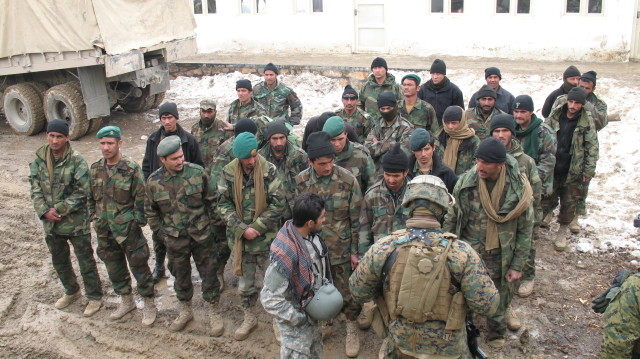
However, when he heard that four members of his team were cut off and isolated he insisted on looking for them. This was when his heated exchange with command took place, with his request to go out and help being denied four times.
Eventually, Meyer jumped into the gun turret and told the Marine driver they were going in to look for their friends.
As the vehicle raced into the village, Meyer’s body was exposed in the gun turret as he fired upon the numerically superior enemy. Immediately, they came upon wounded Afghan soldiers and Meyer leaped out of the turret to load them up and return them to safety. However, his friends were still unaccounted for. Once the wounded were unloaded he returned for a second trip.
The enemy fire was still raining down and, at times, Meyer was forced to shoot at point blank range as the Taliban rushed the vehicle. Again, they came upon wounded soldiers and returned them to the safety of the rally point and again, Meyer made a trip back into the fray.
A Fight for His Friends
On the third trip, they came across pinned down Americans seeking relief from the heavy fire. Meyer and the driver wedged the vehicle between them and the enemy giving them the opportunity to escape as Meyer provided covering fire. On a fourth trip back into the kill zone, Meyer was wounded in the arm by shrapnel. It was on a final fifth trip that Meyer located his friends.
He rushed to them under a storm of enemy fire, only to find the three Marines and one Navy Corpsman were dead. Their gear and weapons had been taken by the Taliban, but Meyer refused to leave their bodied behind. He loaded up his fallen comrades and made a final exit from the village.
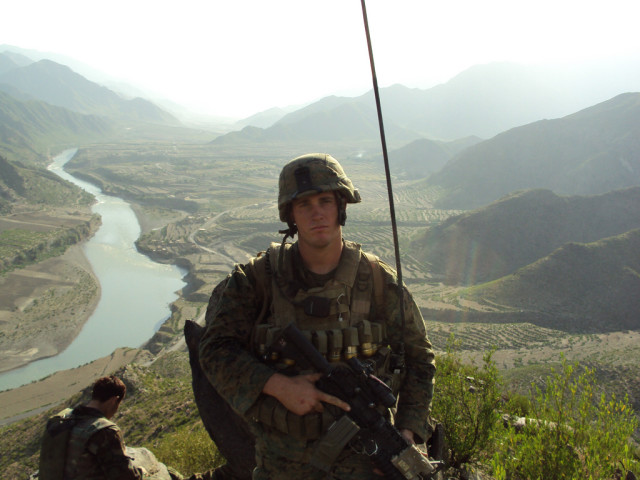
For his actions that day, Dakota Meyer was awarded the Medal of Honor.
36 men came home alive as a direct result of the gallantry displayed by Dakota Meyer. Despite defying orders, he lived up to the highest ideals of the Marine Corps, refusing to leave a single man behind.
